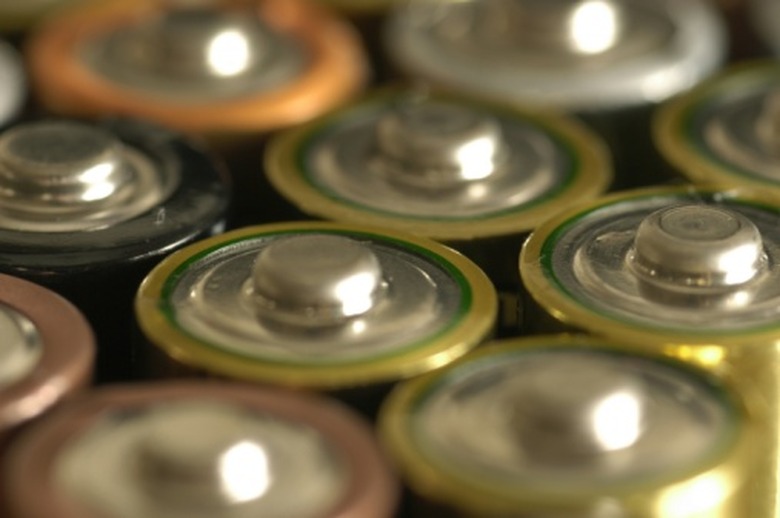How To Dispose Of Batteries If They Explode
Things Needed
-
Latex gloves
-
Cotton swab or old toothbrush
-
Vinegar
-
Lemon juice
-
Towel
Tip
If the damaged battery is acid rather than alkaline, use baking soda instead of vinegar or lemon juice to clean the corrosion.
Warning
If you do touch the leakage, be sure to wash your hands thoroughly with soap and water. Never clean electrical devices with only water, as this may cause damage.
Batteries can explode for a variety of reasons: because they are left unused in devices well past their expiration date, mixed with other types of batteries in the same device, stored in extreme temperatures or improperly inserted. Another way to quickly cause an explosion is to attempt to recharge primary (nonrechargeable) batteries. Among battery types, alkaline are the cheapest, most commonly used and, fortunately, the easiest to dispose of should they explode.
Step 1
Cover your hands with protective latex gloves and remove the battery from the device. Be careful not to touch your face or body with the leaked chemicals.
Step 2
Scrub away as much of the white, chalky buildup as possible with a cotton swab or an old toothbrush.
Step 3
Drop a small amount of vinegar or lemon juice onto a towel and clean the area to remove the remaining corrosion.
Step 4
Brush the terminals again with a dry cloth and wipe off leftover flakes and particles. Allow the device to dry completely before installing new batteries.
Step 5
Dispose of the alkaline batteries in the trash, unless you live in California. If you are a California resident, place the batteries in a plastic bag and bring them to a local recycling center.
